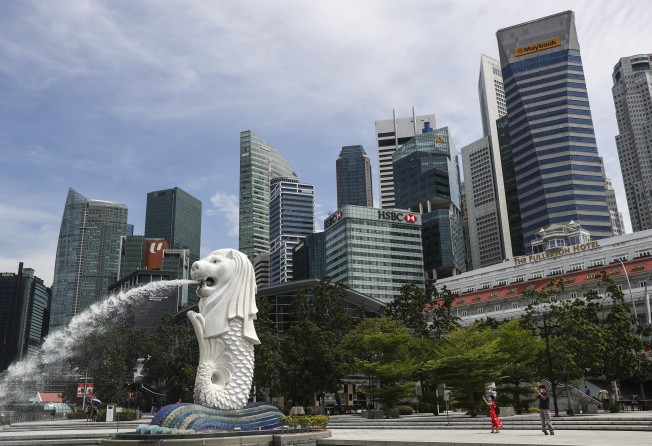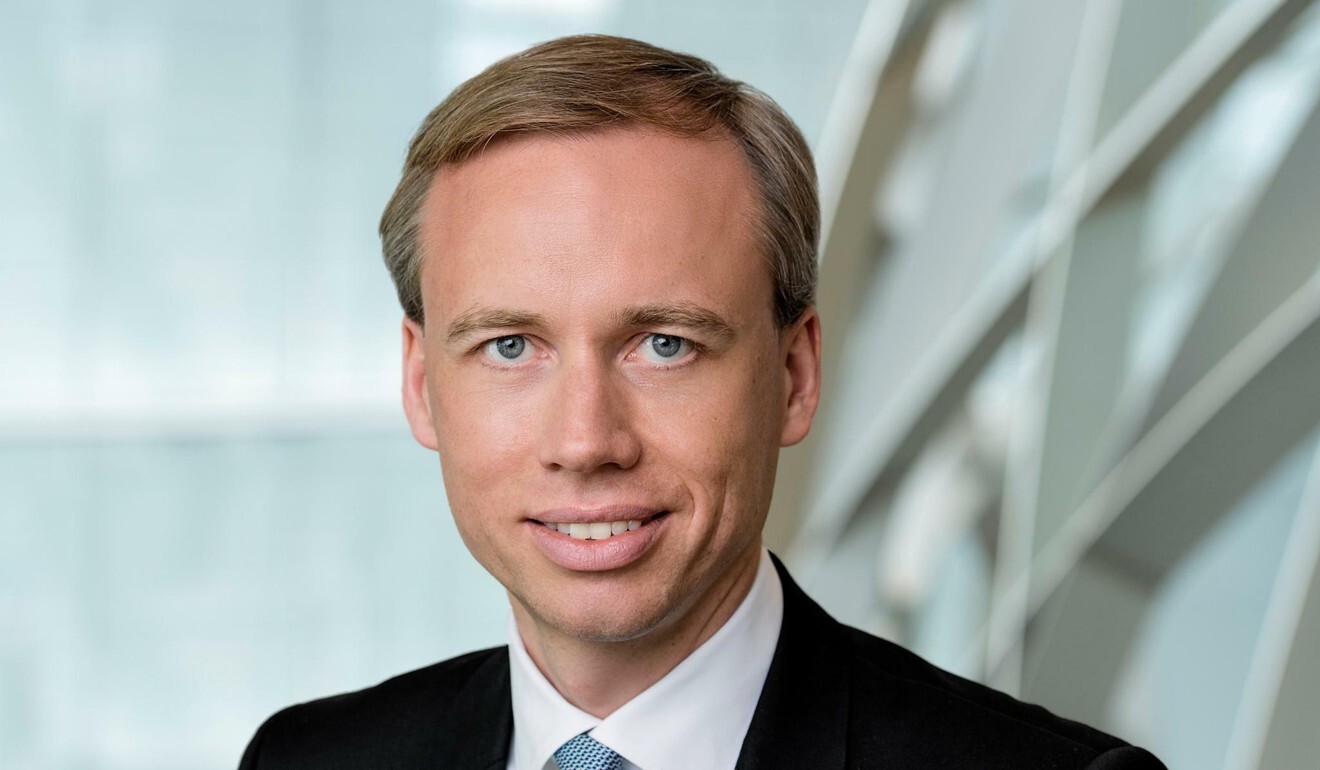Deutsche Bank’s incoming Asia-Pacific CEO picks Singapore over Hong Kong for his home base
- Alexander von zur Muehlen assumes the role on August 1; Werner Steinmueller, his predecessor, was based in Hong Kong
- Lender routinely splits executive teams in the region between the financial hubs

Deutsche Bank’s incoming Asia-Pacific chief executive Alexander von zur Muehlen is relocating to Singapore in keeping with the lender’s “dual hub” structure for region. His predecessor was based in Hong Kong for the past four years.
Muehlen, one of the architect’s of the lender’s massive restructuring last year that included the closing of its equity sales and trading business, is set to succeed Werner Steinmueller on August 1. Steinmueller, who joined the bank in 1991, will continue to serve in an advisory role until the end of the year.
Deutsche Bank routinely splits its executive teams in the region between the financial hubs, with Steinmueller’s co-CEO predecessors based in Singapore and in Hong Kong between 2012 and 2016. Steinmueller was the first from the region to serve as a member of the bank’s management board.
“We have – and always have had – and remain committed to a dual hub structure for the region,” a Deutsche Bank spokeswoman said on Thursday.
The company’s wealth management, asset management and corporate finance functions operate primarily out of Hong Kong, whilst its fixed-income and commercial banks operations are primarily run out of Singapore. The bank’s new environmental, social and governance head relocated to Singapore from Washington in June.
Bloomberg reported the Muehlen move earlier on Thursday.
Muehlen’s move comes at a challenging time for Hong Kong, which has found itself at the centre of rising tensions between the United States and China in recent months following the passage of a controversial national security law tailored by Beijing for the city.

The decision comes as questions are rising about whether the new security law will affect Hong Kong’s standing as an international financial centre and lead to a flight of capital and talent. Hong Kong Financial Secretary Paul Chan has sought to reassure global investors in recent weeks that the city’s Basic Law guarantees there will be no restrictions on capital flows in and out of the city.
Following its passage, US Secretary of State Mike Pompeo declared that the security law had destroyed Hong Kong’s “autonomy” from China.
On Wednesday, US President Donald Trump signed into law the Hong Kong Autonomy Act, which requires sanctions against individuals found to have helped end Hong Kong’s “high degree of autonomy” from mainland China, as well as foreign financial institutions that engage in “significant” transactions with them. Trump also signed an executive order that ends Hong Kong’s preferred trading status. Beijing vowed to respond with its own sanctions.
This week, Bloomberg reported that Carl Huttenlocher, a veteran hedge fund executive in the region, will relocate to the US next year, as part of a move to make his fund more globally focused, but will keep his offices in Hong Kong and Singapore open.
Huttenlocher did not cite the security law as a reason for his decision in the interview, but said increased US-China tensions were a reason he planned to shift the geographical weighting of his fund from an Asia focus to a global focus.
Speaking at the Hong Kong stock exchange’s commodities forum on Thursday, Charles Li, the chief executive of Hong Kong Exchanges and Clearing (HKEX), said the national security law brought “peace and order” to the city after months of anti-government street protests and the bourse has been working with the international community to ease their anxieties over the law.
Li, also known as Li Xiaojia, said he did not believe the passage of the Hong Kong Autonomy Act would “fundamentally change” the city.
“In this environment with the US and China growing more and more further apart from each other, I think Hong Kong’s function of being the connector, being the translator, being the converter is extraordinarily important,” he said.